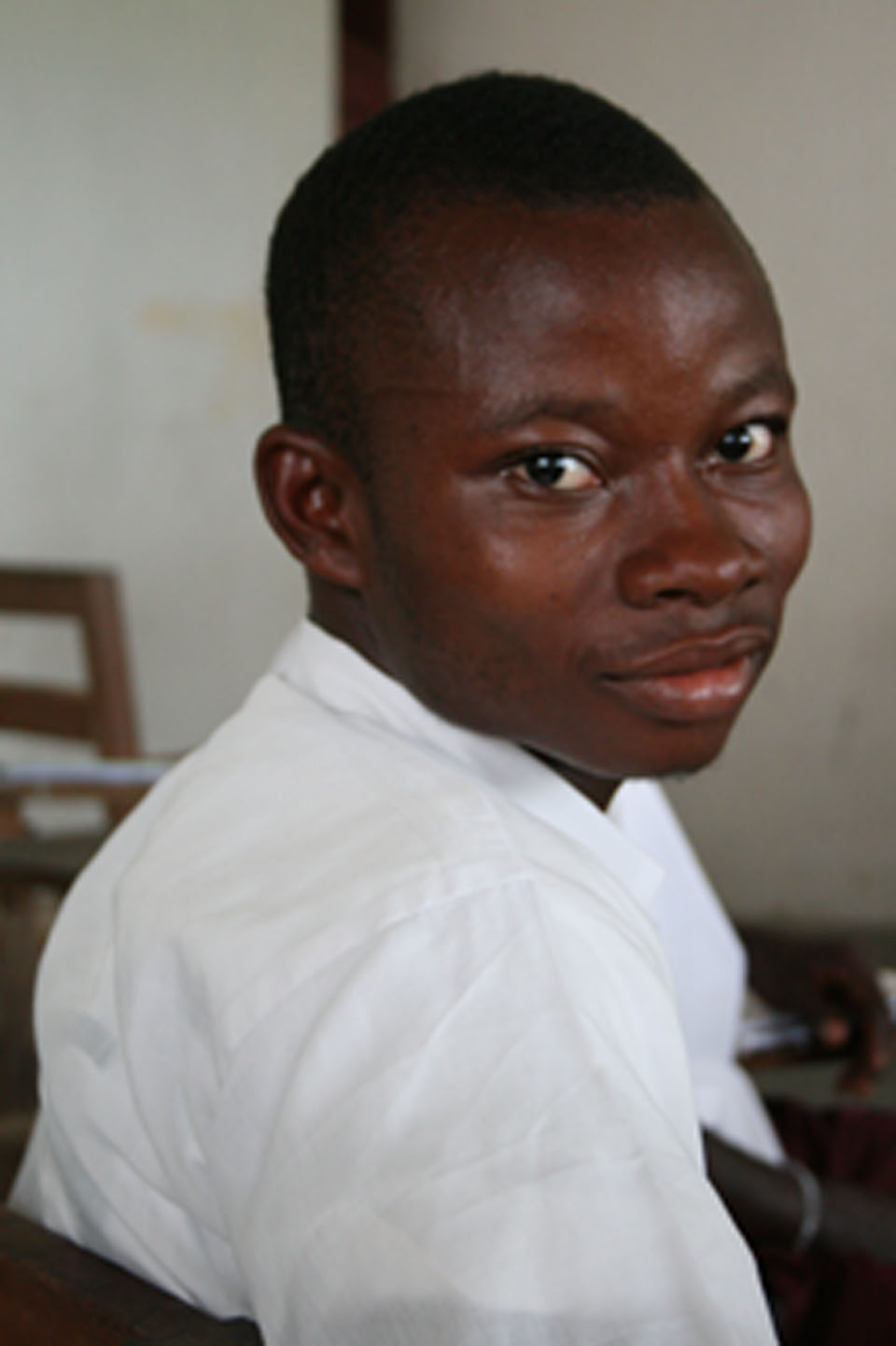We began this week by spending two nights in Cestos, the capital of Rivercess County. One of the aims of the Together Liberia project is to give greater voice to people in communities outside of Monrovia. The print media here in particular seems to concentrate mostly on big-city politics. I have yet to see a single story on life outside of the nation’s capital.
It might just be that I am not reading widely enough, but I don’t think so. I am trying to talk to as many journalists as I can, and they all seem to say the same thing: People outside Monrovia are ignored. Journalism in Liberia is political, and most media seem to have some bias, albeit perhaps out of necessity. You need money to pay for basic things such as digital recorders, and to feed your family.
The superintendent of Rivercess is the man in charge of the county. We got lucky with him because he understands our business; before he entered politics, he was a well-respected journalist. He has an idea about starting up a newspaper for the counties called Rural Messenger, I believe. He came to the States a few years back, and met a professor who specializes in rural journalism. The Messenger is his pet project, on the back burner while he holds office.
Cestos is a small town. It has one main street, a handful of houses with a hospital at one end and an army of U.N. peacekeepers at the other. It is sandwiched between the river and the ocean, and is suffering badly from erosion. The smell of dried fish hangs in the air. Children from neighboring settlements arrive for morning classes by longboat. On the way to school one morning, one child had caught a small, armored animal he was taking to school for lunch. He held it up proudly for our team to photograph.
Cestos is poor. There is not a paved road for hours, and like everywhere in Liberia, little electricity. At the guesthouse where my group stayed, they seemed to think that Westerners like music, and that they like it LOUD. Our manager blared music in the outdoor sitting area until midnight, even though the town goes to sleep shortly after nightfall. No one was in the bar. We were upstairs with pillows over our heads, trying to drown out the techno. Over at the other guesthouse, the manager had left the generator on in case the Westerners needed light. There were no switches – as long as the generator was on, so was every light in the place. While a kind thought, this meant that the poor crew there got very little sleep; the grinding whoosh of a jet engine apparently has nothing on a Rivercess generator.
The people in the town were lovely. I especially enjoyed meeting Rebecca, the Rivercess Broadcasting Service station manager. A swanky title, but modest digs. The building housing the radio station was brightly painted, with greenery potted in leftover paint tins, and carefully arranged along the outside wall. There were easy chairs lined up on the little porch outside the station door for visitors to chat in. The station’s student volunteers sat huddled over a portable DVD player watching scandalous pirated Nigerian (Nollywood) movies with dubious messages about the place of women online casino in society.
But they had no working bathroom. When nature called, I was told to go in an open field behind the studio, where my lily-white bottom glinted in the moonlight for all (and a group of riveted young boys in particular) to see. In front of me was the beginnings of a restaurant Rebecca is hoping to build as a sideline to pay her staff (there were people in there too – so I was observed from all sides).
The radio station also lacked a computer. And recorders. And Internet access, even if they had a computer. When Rebecca sends her team out into the streets to interview locals, they write down their replies on scraps of paper and read them out over the air. They do phone-in programs by holding up cell phones to their microphones. An NGO donated their radio equipment, but no one knows how to service it. Someone comes once a year, so they hope nothing goes wrong in the meantime.
Despite all this, you get a good feeling about Rivercess Radio. They broadcast national news produced by the U.N. Mission in Liberia, or UNMIL. They gather their own local news each day to inform their community. They have a program with the magistrate, who explains the legal system to his constituents. They broadcast local church services on Sundays, and try to find recordings of the local music that really appeals to their community, which prefers songs in local languages to Eminem or Britney. They are trying to figure out what their community wants, and are working hard to deliver it to them.
Rebecca has about 15 people on her staff, mostly volunteers. She lives off 1,000 Liberian dollars per month (about US $14), and went to hell and back during the war (one of our Together Liberia journalism trainees, Beyan Howard, will tell you Rebecca’s story). Many of her volunteers are kids from the local high school, and you have to admire their thirst for learning new skills in a town that does not seem to offer much in the way of opportunity.
The Together Liberia project is hoping to offer Rebecca one opportunity. We have invited her to join our training next week here in Monrovia, along with another journalist from Rivercess. We hope that we can share with her some of our skills, and learn skills from her, and together support some members of Liberia’s media community.


